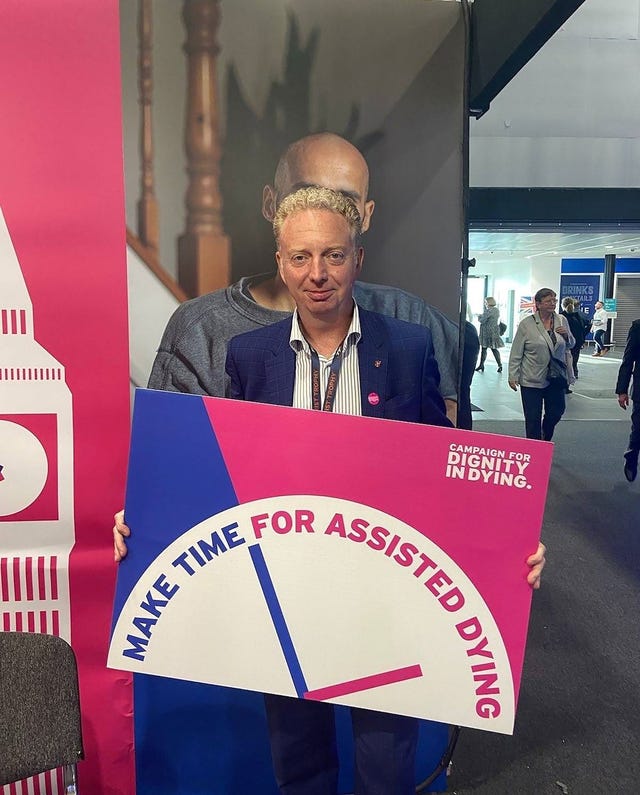Isle of Man set to take historic step closer to legalising assisted dying
Tuesday could be the last time the Bill is debated by the directly elected chamber of the island’s parliament.

A doctor behind proposed assisted dying legislation on the Isle of Man said he is hopeful it will become law this year.
Dr Alex Allinson spoke as his Bill comes before the House of Keys for what could be the final time, leaving the island on course potentially to be the first part of the British Isles with a legalised service in place – possibly by 2027.
He introduced it in 2022 as a private member’s bill and on Tuesday it faces what could be its last debate by the directly elected chamber of the island’s parliament.

If passed by the House of Keys, it would return to the upper chamber, known as the legislative council, next month.
If passed there it will be put forward for royal assent, possibly in the coming months.
Should this be the case, it is thought an assisted dying service could be up and running in 2027, after various necessary regulations were put in place.
Dr Allinson, Member of the House of Keys (MHK) for the Ramsey area on the island, told the PA news agency: “I’m hopeful that the understanding and the consensus that we’ve reached during our own deliberations will allow the Bill to progress.”
He said it would be “another step forward in terms of advancing the legislation”, adding he would hope for royal assent “this year”.
Campaigners opposed to a change in the law have voiced concerns that legalising assisted dying could put pressure on vulnerable people to end their lives for fear of being a burden on others, and argue that the disabled, elderly, sick or depressed could be especially at risk.
As it stands, the Isle of Man Bill is only for adults resident on the island who have a terminal illness with a life expectancy of no more than 12 months, and who have a settled intention to end their life.
Other measures around ensuring legal and workplace protection for medical professionals who participate in assisted dying have also been agreed, while a request from the British Medical Association (BMA) for an opt-in model for doctors who choose to be part of the service was approved.
The legislative council has recommended the residency criteria be reduced from five years to one since the person’s diagnosis, but Dr Allinson said the House of Keys is likely to reject that.
In May last year, Jersey’s parliament voted in favour of drawing up laws to establish an assisted dying service on the island for terminally ill people.
After a law has been drafted, a debate could take place by the end of this year, with a likely 18-month implementation period if a law is approved, meaning the earliest for it to come into effect would be summer 2027.
Sarah Wootton, chief executive of Dignity in Dying, said: “The Isle of Man is set to make history on Tuesday; likely to become the first place in the British Isles to grant its citizens true choice at the end of life.
“We pay special tribute to the Manx families who intimately understand the dangers of banning assisted dying, and who have fought for so long for a safer, fairer future. That future is now within touching distance.
“There is growing recognition across our isles that banning assisted dying causes harm and fails to protect people.”
She said the Bill “represents a thoughtful and balanced response to this problem, and Members of the House of Keys and Legislative Council should be commended for their leadership”.
She added: “This Bill has been developed through careful, evidence-based debate to bring choice for dying people who want and need it, and greater protections for everyone.”
Meanwhile, a 23-member committee is to resume line-by-line scrutiny of the Terminally Ill Adults (End of Life) Bill, covering England and Wales, on Tuesday.
The Bill is expected to return to the House of Commons, most likely towards the end of April, for further debate and a vote by all MPs.





